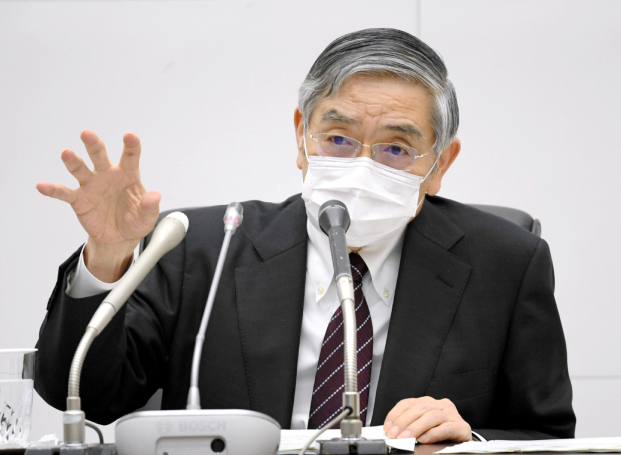Japanese Prime Minister Fumio Kishida refused on Monday to add wage growth as a new monetary policy goal of the government and the central bank.
Bank of Japan Governor Haruhiko Kuroda backed the prime minister’s decision and said that setting real wage growth as its policy target would be difficult.
“I’m not thinking of reviewing it,” Kishida told parliament, when asked by an opposition lawmaker to change the wording in a joint BOJ-government policy statement agreed upon in 2013.
“The government will prepare policies to prop up wages, working closely with the central bank,” he said.
Under pressure by former PM Shinzo Abe, the BOJ signed an agreement in 2013 with the government that clarified the central bank’s role in achieving its 2% inflation target “at the earliest date possible.”
That statement also required the government to achieve sound fiscal policy and carry out structural reforms to boost Japan’s growth potential.
Some opposition lawmakers and academics have proposed revising the statement’s wording, or create a new statement, as rising inflation and a lack of accompanying wage growth hurt households.
Critics also warned about the rising cost of prolonged monetary easing, as years of ultra-low interest rates and the BOJ’s huge asset buying have hurt financial institutions’ profits and pushed down liquidity in the Japanese government bond (JGB) market.
While inflation has exceeded the BOJ’s 2% target, Kuroda has repeatedly stressed the need to maintain the bank’s massive stimulus until wages rise enough to make up for the rising cost of living.
- Reuters with additional editing by Jim Pollard
ALSO SEE:
Consumer Inflation in Tokyo Rises at Fastest Pace in Decades
Japan’s Imports Surge 45% to Record High on Weakened Yen
Why Japan Has Fallen Out of Love With a Weak Yen
Former Japanese PM Shinzo Abe Assassinated on Campaign Trail
























